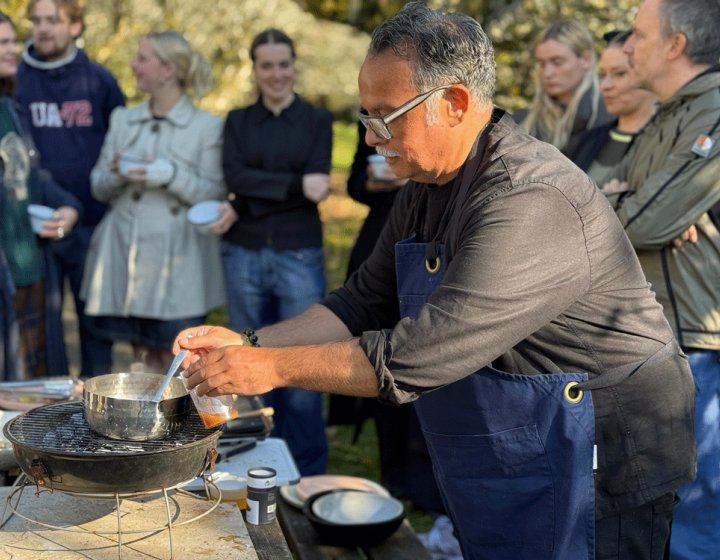Sustainable careers for the green economy
13 December 2022

Businesses are key players in the fight for a more sustainable global society because they are both part of the problem and the solution. With the introduction of Government guidelines on sustainability and a growing expectation from consumers, a lot has changed in recent years when it comes to running a business. So, what does the landscape for careers in sustainable business look like today?
Sustainability as standard
The spectrum for a career in sustainability has broadened over the years. No longer are sustainable jobs reserved only for roles that are exclusively green, such as solar engineers. Today, careers in sustainability can cover anything from fashion manufacturing to sales management.
Developing green skills will only make you more desirable to employers.
As society becomes more educated, consumer demands are changing, and more people are asking for sustainable products, packaging and practices. The rise in purchasing power of the two most significant green generations, millennials and Generation Z, has made businesses of all kinds sit up and realise the benefit that adopting sustainable business practices can have on both brand reputation and financial savings – as well as our society at large.
Investors are also beginning to take Environmental, Social and Governance factors (ESG) into account, giving rise to sustainable finance. Governments are issuing more green regulations and professional bodies are creating green certifications.
With the addition of The 2030 Agenda for Sustainable Development, which aims to build sustainable infrastructure, promote sustainable industries, and encourage companies to adopt sustainable practices, it’s clear that sustainability is no longer a buzzword but a standard requirement for commercial entities.
The transition to sustainable practices requires systematic changes and will continue to bring new products and services to the market, innovative business models and changes in production processes. These changes inevitably require new green skills in the workforce.
High demand for green skills
In the last decade, careers in sustainability have become professionalised. For instance, once considered an amateur title, Chief Sustainability Officers (CSOs) are becoming vital for executive teams. Today, CSOs need to be able to guide on legal issues, supply chains and business strategy.
As stated in LinkedIn’s Global Green Skills Report 2022, “We have a historical opportunity to rethink how we approach the global workforce’s transition into a greener economy, based on skills.”
The report projects that demand for green talent will soon outpace supply, suggesting a need for professionals to gain green skills so we have the human capital to meet our climate targets.
The United Nations Industrial Development Organization (UNID) classifies green skills into four main types:
- Engineering and technical skills
- Science-based skills
- Operational management skills
- Monitoring skills
Engineering, technical and science-based roles require specialised skills and, in most cases, specific degrees or certifications, for instance, energy engineers and urban planners.
Sustainable careers in areas of operational management and monitoring could include working in:
- Corporate Social Responsibility
- Consultancy
- Government policy
- Not-for-profit organisations
- Entrepreneurship
These areas will require an acute awareness of sustainability principles, trends and challenges, skills that help to support and create sustainable practices. Operational managers working in sustainability will need to have a firm understanding of business models, green product development, ethical trade, conscious change management, multi-stakeholder management and leadership.
Other roles in monitoring will require a good knowledge of Environmental, Social, and Governance (ESG) scores, reporting practices, legal requirements, and standards. In these roles, communication of business cases, legal vocabulary and statistical analysis are essential.
These green skills can give you the ability to advise companies on how to make their business models more sustainable. You could also work in the public sector or for non-profit organisations, helping them to make positive change.
As we move towards a more sustainable future, developing green skills will only make you more desirable to employers. In 2019, the balance tipped towards green talent as the green hiring rate accelerated ahead of the overall hiring rate in most economies around the world. This means that, globally, green workers were hired at a higher rate than non-green workers.
Power the green transition
Jobs in sustainability are urgently needed to power the green transition. Business courses at Falmouth like Business Entrepreneurship & Innovation BSc(Hons) have strong sustainability themes weaved throughout them to help ensure that bigger impacts are considered when structuring businesses.




